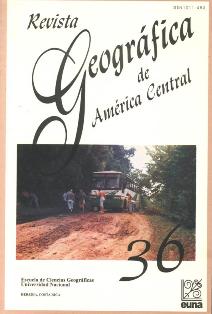UN “ORDEN MUNDIAL” NO TAN “NUEVO”: BANDERAS DE CONVENIENCIA Y EL OECÚMENE GEOECONÓMICO
Abstract
El rol de la geocconomía como una poderosa herramienta condicionante al interior de la organización de “lo global”, permanece sin la suficiente investigación en lo relativo a los trabajos sustentados en la tradición geopolítica. Las Banderas de Conveniencia (BDCs, en adelante) son destacadas como un ejemplo de la importancia que posee el enfrentamiento entre la geopolítica y la geoeconomía en la geoeconomía política, y las dificultades asociadas con el manejo de “lo global”. Banderas de Conveniencia es la expresión que define la utilización por parte de una empresa mercantil naviera de la bandera de un país que no es el suyo, con la finalidad de beneficiarse de la regulación menos estricta que rige en dicho país. El mecanismo a través del cual se realiza esta acción está constituido por el registro de la nave en el país que la va a beneficiar con su regulación. El presente artículo se preocupa de la geopolítica, de manera preferente, como de las interrelaciones de las naciones-estados (lo internacional). Por contraste, la geoeconomía sugiere una preocupación acerca de la fluidez de las transferencias y los flujos de capital y productos al interior y entre las empresas y los mercados, a una escala global. Los desarrollos en la geoeconomía durante la Guerra Fría han tenido como resultado la evolución de un oecúmene geoeconóm leo. Dicho oecúmenc se caracteriza por la flexibilidad del intercambio mundial, y la relativa facilidad de los movimientos y flujos transfronterizos. Estableciendo un enfrentamiento entre la geopolítica y la geocconomía, el concepto de una geoeconomía política globalizada se hace más difícil y las operaciones de las BDCS demuestran los problemas vinculados con el manejo y control en este nivel.
Abstract:
The role ofgeoeconomics in the organization of “the global” has received comparatively little attention comparcd with traditional geopolitics; in contrast to the inter-state focus of gcopolitics, geoeconomics focuses on the global transfers of capital and goods in and between firms and markets. In this paper, “Flags of Convenience” are used as examples of the merging of geopolitics and geocconomics within an evolving glohalised “geopolitical cconomy”; they also reveal the complex issues associated with thc control and management of globalised activities. Geoeconomic changes during the Coid War have given rise to increased intcrconncctcdness at the global level. These connections are characterized by flexibility, transfers, ease of movement and transboundary flows. By linking gcopolitics and geoeconomics within a concept of a globalised geopolitical economy, it may be possible to understand these changes better, also the ways in which their negative and positive impacts can be reduccd or enhanced respectively.
Downloads
How to Cite
Issue
Section
License
Proposed policy for journals offering Open Access
Authors publishing their works in the Journal acknowledge and agree to the following terms:
a) Authors retain the copyrights to their works and guarantee the Journal the right to be the first to publish their works, under the Creative Commons License Attribution-NonCommercial-ShareAlike 4.0 International, CC BY-NC-SA 4.0 International (https://creativecommons.org/licenses/by-nc-sa/4.0/deed.es), which allows others to share works upon complying with the acknowledgment of authorship and mention of the Journal as the original publisher of the work.
b) Authors are permitted to separately establish additional agreements for the non-exclusive distribution of the official edition of the work published in the Journal (for example, authors may desire to place the work in an institutional repository or incorporate it into a book that is to published elsewhere) so long they acknowledgment to recognize the Journal as the original publisher. The aforementioned additional agreements must respect the terms of the non-profit character and sharing philosophy of the original license (CC BY-NC-SA 4.0 International, https://creativecommons.org/licenses/by-nc-sa/4.0/deed.es).
c) Authors are encouraged to archive the post-print or editor/PDF version in Open Access repositories.






 REVGEO is licensed under https://creativecommons.org/licenses/by-nc-sa/4.0/deed.es
REVGEO is licensed under https://creativecommons.org/licenses/by-nc-sa/4.0/deed.es
.svg_4.png)

_(1).png)
_(1)_(1)_(1)_1.png)
(2)(1)(1)(1).png)
